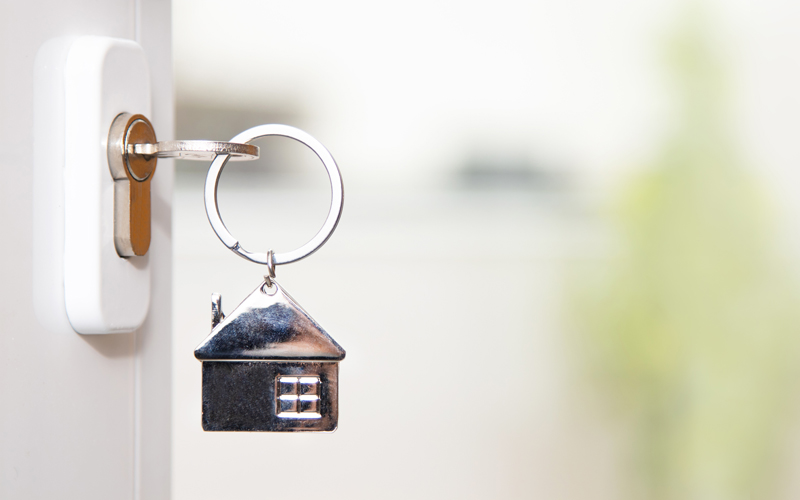Chris Gray’s investment strategy is simple: never sell property.
Just in case you haven’t heard me say it a million times before, my property investment strategy is simple… never sell property.
BUY AND HOLD.
Let me make that as clear as possible:
Buy – whenever you can
Hold – as long as you can
There are many reasons to hold long term, though here is a big one…
Capital Gains Tax.
What are capital gains?
Capital gains (in very basic terms) is the amount of money an asset has increased in value from the time it was purchased, to the time it was sold.
For example, if you purchased a Bondi apartment in 2001 for $500k and sold it in 2021 for $1.5m, the capital gains would be $1m.
Purchase price: $500,000
Sale price: $1,500,000
Profit (capital gains): $1,000,000
What is Capital Gains Tax?
Capital Gains Tax (CGT) is a tax introduced in Australia in 1985 and imposed on the sale of assets (unless specifically exempt) acquired since that time.
Investment property is classified as an asset, so if you sell an investment property (different rules apply for primary places of residence, so always be sure to check with your accountant), the ATO will come sniffing around for a massive piece of the pie.
Using the example above, you can expect a knock at the door from the ATO with their hand out requesting that tax is paid on part or all of the $1,000,000.
This is where it gets complicated and you must have the help of an accountant. There are many different rules that apply on the sale of the property for individuals, super, companies, trusts, foreign residents and how long you actually owned (or lived in) the asset for.
One thing is for sure though… it’s not going to be pretty.
How to NEVER pay CGT
Never sell.
Simple. Think outside the box. CGT is a tax on the sale of assets.
So if you never sell, you never have to pay the CGT.
“But Chris,” I hear you say. “How can I make any money from property if I never sell and realise my profit?”
Great question.
Even if you never sell property, the property itself increases in value. The increase in value is referred to as “equity”.
Using the example above, if you initially took a loan for 100 per cent of the purchase price of the $500k Bondi apartment and had kept an interest-only loan, years later your loan would still be $500k.
The difference now is that the property is worth $1.5m, so you have built $1m worth of equity.
Banks (and other lenders) recognise this, so they may be now willing to lend you additional money against that equity. Again, talk to your accountant and mortgage broker as every circumstance is different.
Is there a point where a finance provider won’t release equity?
Serviceability is a major issue with refinancing these days and that’s what property investing has turned into. It’s at least 90 per cent of the game of getting money from the bank for either continuing to build your portfolio or access to equity to live off.
One alternative strategy to consider is to get banks to release properties debt free.
- Let’s say you had 5 x $1m properties at 80 per cent finance, ie. $4m debt.
- Over time those properties double in value to $2m each x 5 = $10m, so now you’re only 40 per cent geared.
- In an ideal world you refinance to 80 per cent again and have $4m in your redraw account – $10m x 80% = $8m less $4m already owed = $4m.
However if you don’t have the ability to service $8m they won’t lend it to you.
If you sell one of those properties for $2m then the bank may require you to pay off that original related mortgage of $800k. Which means you only get $1.2m net proceeds from the sale, less tax of $250k ($1m capital gain less 50% CGT discount x 50% tax). So you only end up with $950k.
There’s an argument to say that the bank only needs $5m of security for your $4m original loan, not the $10m current value. So there’s a chance they will release $5m of property debt-free and give you back the title deeds.
They probably won’t do it if you say you’re going to sell property. as that would reduce the income you’re using to service the $4m debt. But if you say you’re doing it for asset protection / diversification reasons, that may give you a better chance.
So then you have your original $5m of property with the bank and your 80 per cent $4m loan.
At a later date you may then choose too refinance or sell.
With that $5m of debt-free property you might be able to go to a 3rd or 4th tier lender and get a 10, 20 or 30 per cent no-doc loan at very reasonable rates. That’s because the risk is very low for the new lender.
If that’s still not possible due to serviceability constraints then, yes, you could sell a property.
But this time you get the full $2m proceeds because those properties are debt free.
You still pay the $250k CGT, but now you end up with $1.75m cash rather than $950k.
One of my friends has done this a couple of times and I’m currently going through this process now. I still have no intention of selling one unless I really have to, but at least it will give me flexibility in the future.
As always check your strategy with your mortgage broker, accountant and/or financial planner before taking any action.




























Trending